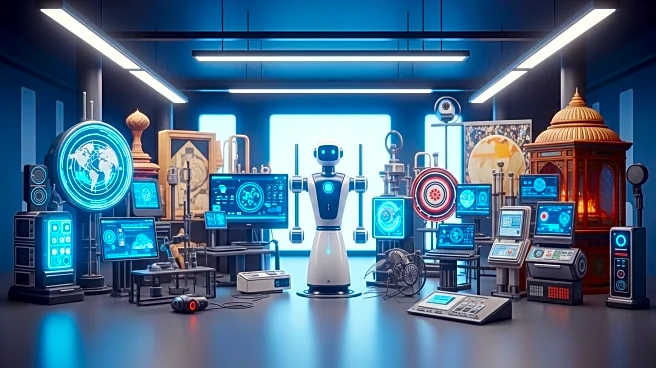What is the story about?
What's Happening?
President Trump has called for Asian and European countries to train the U.S. workforce in high-tech manufacturing sectors. This request highlights a shift in the U.S. industrial landscape, where America once led in industries like semiconductors, shipbuilding, and high-speed rail. Trump acknowledges that the U.S. has fallen behind in these areas and emphasizes the need for foreign expertise to rebuild American industrial capacity. The statement reflects a broader recognition of the U.S.'s reliance on foreign technology and expertise, particularly from countries like Taiwan, South Korea, Japan, Germany, and France.
Why It's Important?
Trump's call for foreign training signifies a critical acknowledgment of the U.S.'s diminished industrial dominance. This move could have significant implications for U.S. economic policy and workforce development. By seeking foreign expertise, the U.S. aims to regain its competitive edge in key industries. However, this approach also highlights the challenges of reversing decades of industrial decline and the need for comprehensive strategies that include education reform and innovation investment. The reliance on foreign trainers underscores the urgency of addressing skills gaps in the American workforce.
What's Next?
The U.S. may pursue partnerships with foreign companies and governments to facilitate knowledge transfer and training programs. This could involve policy changes to encourage foreign investment and collaboration in high-tech sectors. Additionally, the U.S. might need to reassess its immigration policies to attract skilled workers and students. The success of these initiatives will depend on the ability to integrate foreign expertise with domestic innovation efforts, potentially leading to a revitalized industrial base.
Beyond the Headlines
Trump's request raises questions about the long-term sustainability of relying on foreign expertise. It highlights the need for the U.S. to rebuild its research and development infrastructure and to foster a culture of innovation. The situation also underscores the importance of balancing foreign collaboration with domestic capacity building to ensure economic resilience and independence.
















